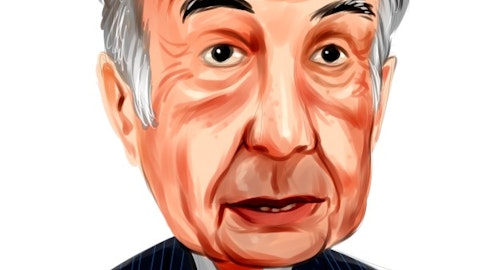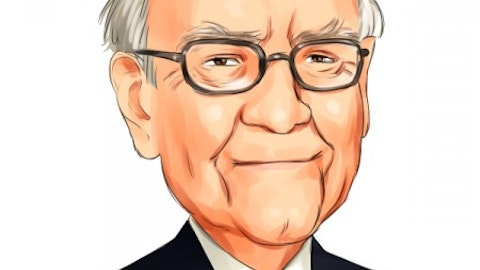You should not buy any business and hold it for the long-run. Businesses with strong competitive advantages and quality managements are preferred long-term holdings.
Great businesses withstand the test of time. Time itself has been very favorable to the stock market.
“Over the long term, the stock market news will be good. In the 20th century, the United States endured tow world wars and other traumatic and expensive military conflicts; the Depression; a dozen or so recessions and financial panics; oil shocks; a fly epidemic; and the resignation of a disgraced president. Yet the Dow rose from 66 to 11,497.”
The quote above shows the powerful tailwind of economic progress that pushes stable businesses to ever greater heights.
One advantage of buy & hold investing is lower taxes. When you don’t sell your holdings, the money you would have paid in capital gains tax is left compounding in your investment.
“Charlie and I would follow a buy-and-hold policy even if we ran a tax-exempt institution.”
Tax advantages are not the primary reason why Warren Buffett (and Charlie Munger) prefer to hold great businesses for the long run. The compounding effects (the ‘snowball effect’) of business growth are reward enough, irrespective of tax advantages.
The 4 quotes below use analogies and metaphors to explain the power of long-term investing.
“Someone’s sitting in the shade today because someone planted a tree a long time ago.”
&
“Calling someone who trades actively in the market an investor is like calling someone who repeatedly engages in one-night stands a romantic.”
&
“Successful Investing takes time, discipline and patience. No matter how great the talent or effort, some things just take time: You can’t produce a baby in one month by getting nine women pregnant.”
&
“Buy a stock the way you would buy a house. Understand and like it such that you’d be content to own it in the absence of any market.”
The quote about not producing a baby in a month by getting nine women pregnant is especially poignant. It drives home the point that several mediocre short-term investments are not the same as one well-timed long-term investment.
This brings up another aspect of Warren Buffett’s success:
Only investing when the best opportunities present themselves – and ignoring everything else.
Do Nothing Investing
Warren Buffett’s partner Charlie Munger has coined a new word for their ability to not act on every investment that comes by: Assiduity
“Assiduity is the ability to sit on your ass and do nothing until a great opportunities presents itself”
– Charlie Munger
Buffett and Munger practice ‘Do Nothing Investing’. They do nothing until a great opportunity presents itself. Once they buy, they do nothing and let the excellent business purchased at an attractive price compound their wealth through time.
Buffett compares investing to a modified game of baseball. The modification: There are no strikes for not swinging. You can wait for the perfect pitch to hit out of the park.
“I call investing the greatest business in the world … because you never have to swing. You stand at the plate, the pitcher throws you General Motors at 47! U.S. Steel at 39! and nobody calls a strike on you. There’s no penalty except opportunity lost. All day you wait for the pitch you like; then when the fielders are asleep, you step up and hit it.”
The fielders don’t fall asleep often. Opportunities are not always there.
“You do things when the opportunities come along. I’ve had periods in my life when I’ve had a bundle of ideas come along, and I’ve had long dry spells. If I get an idea next week, I’ll do something. If not, I won’t do a damn thing.”
Opportunities come in waves. These ‘waves’ coincide with recession (which are discussed later in this article). Dry spells are usually during protracted bull markets – when great businesses are not trading at a discount.
You should take full advantage when the opportunities come.
“Opportunities come infrequently. When it rains gold, put out the bucket, not the thimble”
What if we didn’t ‘swing at every pitch’? What if instead of investing in mediocre businesses at mediocre prices, we only invested in phenomenal businesses at discounted prices?
Warren Buffett advises that to invest this way, you should act as if you have a limited number of times you can invest in the market.
“An investor should act as though he had a lifetime decision card with just twenty punches on it.”
The number 20 is arbitrary, but it shows how little activity is required to do well with your investments. The two Warren Buffett quotes below elaborate further on the disparity between action and results.
“You only have to do a very few things right in your life so long as you don’t do too many things wrong.”
&
“It is not necessary to do extraordinary things to get extraordinary results.”
Action does not equal success with investing. One well timed investment in a great business is worth dozens of good short-term ideas because the benefits of compounding continue to accrue over time with the great business.
That is why Buffett focuses on sitting and thinking rather than acting rashly.
“I insist on a lot of time being spent, almost every day, to just sit and think. That is very uncommon in American business. I read and think. So I do more reading and thinking, and make less impulse decisions than most people in business.”
When investing less often, you must be very sure of your investments. This means staying in your circle of competence.




